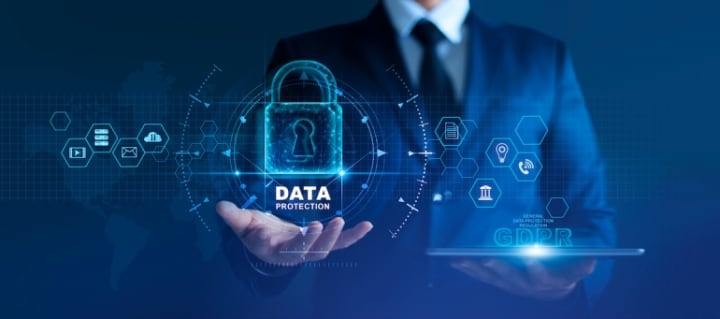The growing importance of data privacy and security, and the ways in which companies and governments are responding to these concerns
Learn how to protect your data..

As we are surfing through the internet, more and more data are getting generated. This data can be used to identify and profile users, and this raises serious concerns about data privacy and security. Companies and governments are currently responding to these concerns by implementing various measures.
One of the most important measures taken is the implementation of data protection and privacy laws. This includes laws such as the General Data Protection Regulation (GDPR) in the European Union and the California Consumer Privacy Act (CCPA) in the United States. These laws make companies accountable for the protection of personal data and provide individuals with more control over their data.
Another measure taken is the adoption of data encryption technologies. Data encryption is a process that scrambles sensitive data to protect it from unauthorized access. Companies can use encryption to protect users’ data both in transit and at rest.
In addition, companies are increasingly focusing on security measures such as authentication, authorization, and access control. Authentication requires users to prove their identity before they can access data. Authorization ensures that users are only allowed to access the data they are authorized to access. Access control restricts access to sensitive data based on the user’s identity and privileges.
How your data can be hacked?
Data security is a growing concern for individuals, businesses, and governments alike. With the increase in digital technology, it is becoming easier for malicious actors to access and exploit data. Unfortunately, no system is completely secure, and data can be hacked. Here are some of the ways data can be hacked, and what you can do to protect yourself.
1. Unsecured Wi-Fi Networks: Unsecured Wi-Fi networks are one of the most common ways data can be hacked. Hackers can easily gain access to unsecured networks, allowing them to intercept and steal data. To protect yourself, make sure your Wi-Fi network is secure with a strong password.
2. Malware: Malware, or malicious software, is a big threat to data security. Malware can be installed on a computer without the user’s knowledge and can steal data or even take control of the machine. To protect yourself, use a reliable antivirus program and keep your software up to date.
3. Phishing: Phishing is a type of attack where hackers send emails or texts that appear to come from a legitimate source, such as a bank or government agency. These messages usually contain malicious links or attachments, which can be used to steal data or access accounts. To protect yourself, be wary of any emails or messages that seem suspicious.
4. Weak Passwords: Weak passwords are one of the most common ways data can be hacked. Hackers can easily guess weak passwords and gain access to sensitive data. To protect yourself, use strong passwords and avoid using the same password for multiple accounts.
5. Social Engineering: Social engineering is a type of attack where hackers manipulate people into giving up sensitive information. This can be done through deception, such as pretending to be a legitimate source or offering a reward. To protect yourself, be wary of any requests for personal information and never give out your passwords or financial information.

How to keep your data safe?
The internet is a great tool for communication, information sharing, and entertainment. However, it also poses a great risk when it comes to data security. With more people using the internet every day, it is important to know how to keep your data safe on the web. Here are some tips to help you keep your data secure:
1. Use strong passwords: Create strong passwords that contain a combination of letters, numbers, and special characters. Don't use the same passwords for multiple accounts, and don't share your passwords with anyone.
2. Keep your devices secure: Make sure to keep your computer, phone, and other internet-connected devices updated with the latest security patches and antivirus software.
3. Use two-factor authentication: Wherever possible, enable two-factor authentication for added security. This requires an additional verification step, such as a code sent to your phone, when logging into an account.
4. Be careful when using public Wi-Fi: Public Wi-Fi networks are often unsecured, which makes it easier for hackers to access your data. When using public Wi-Fi, use a Virtual Private Network (VPN) to help protect your data.
5. Be aware of phishing scams: Phishing scams use social engineering techniques to try and get you to reveal personal information or download malware. Be cautious when opening email attachments or clicking on links sent from unknown sources.
6. Back up your data: Regularly back up all your important data to an external hard drive or cloud storage. That way, if your device is stolen or compromised, you'll still have access to your data.
About the Creator
William Davis
What was the first word I wrote? I don't remember.
What will be the last word I wrote? I don't want to know.






Comments
There are no comments for this story
Be the first to respond and start the conversation.